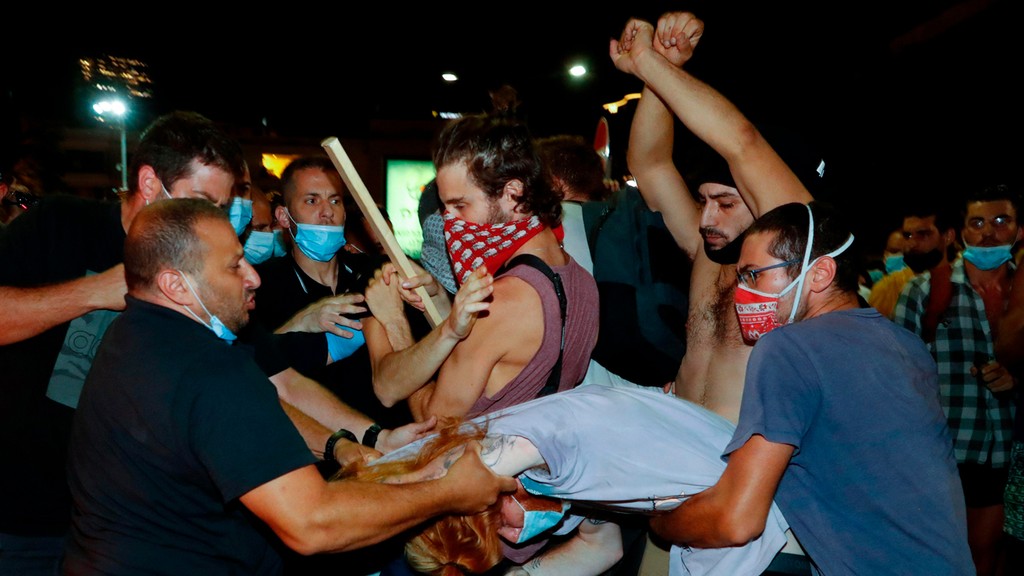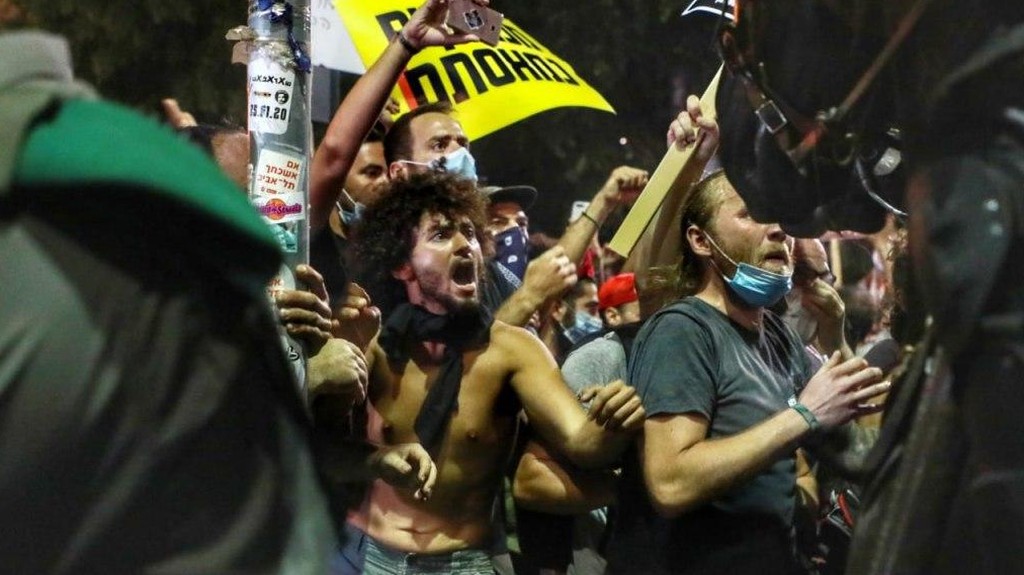Getting your Trinity Audio player ready...
Does anyone remember the Pensioners' Party of the 2006 elections, which was dubbed as the surprise success of the elections? Well welcome the surprise success in the next round of elections - Israel's youth.
This surprise is materializing as we speak, in Jerusalem and on top of the country's many bridges.
5 View gallery
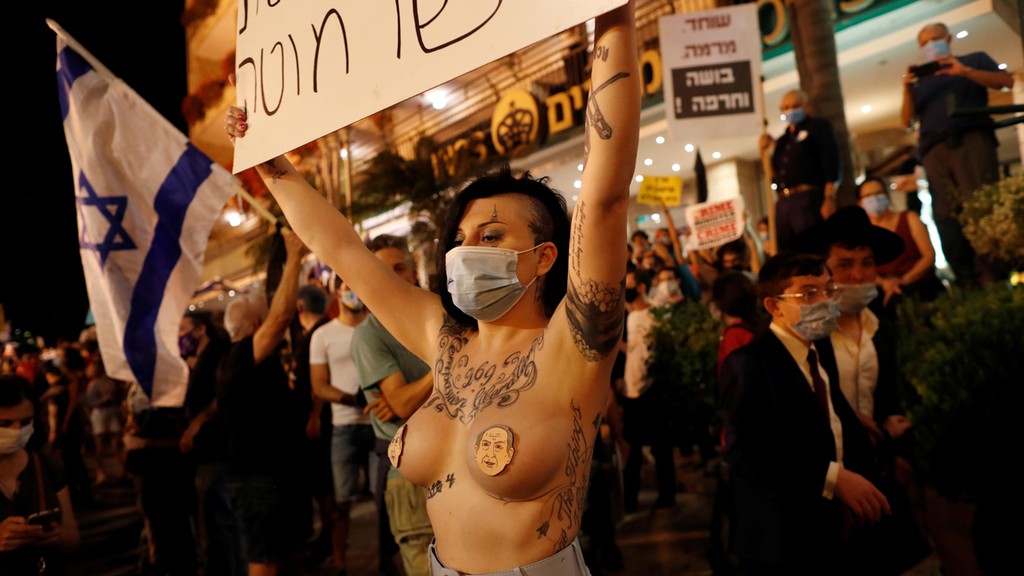

An anti-government protester outside the prime minister's Jerusalem residence
(Photo: EPA)
This movement has yet to be sullied by politicians and so far has no advertising-addicted leaders. But those with an ear to the ground can hear it coming.
Protest is what got the senior citizens into the Knesset with seven seats, and it will be no different this time.
So, what actually got the young people on the streets during the sweltering summers while a pandemic was raging? What got them waving flags for democracy and against corruption? After all, this issue has been overflowing the public discourse for the past three elections.
The answer can be found with one young woman who protested in Jerusalem with a huge sign reading: "We are the children of November 1995."
5 View gallery
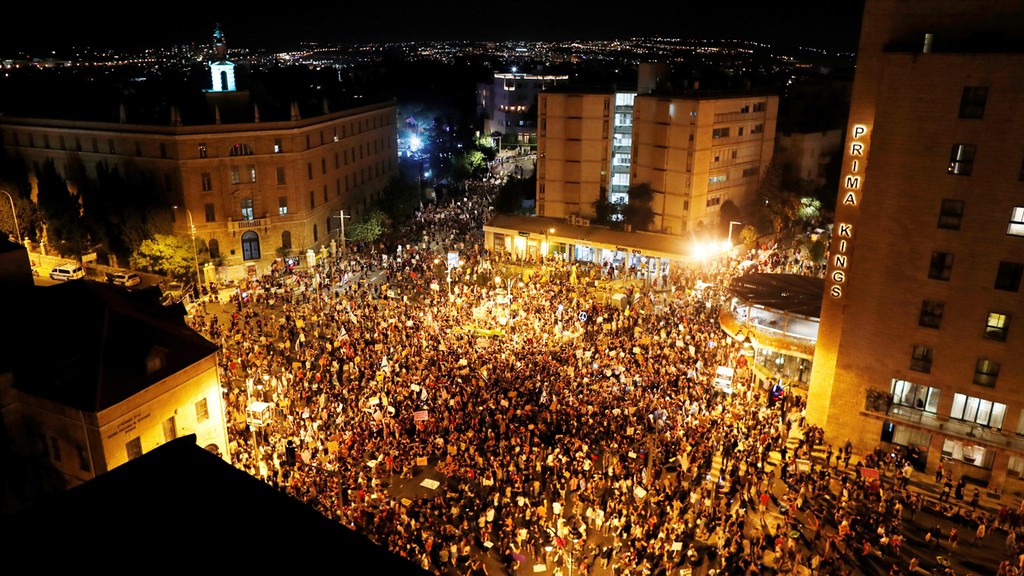

Anti-government protest outside the prime minister's Jerusalem residence
(Photo: Reuters)
These protesters, some of whom were actually born in the year of Rabin's assassination, did not take to the streets over Prime Minister Benjamin Netanyahu's investigations and not even because of the coronavirus.
They came out because they feel their country is being sold right under them, and that they are being conned and lied to right to their faces.
It is not that they don't care about the rest. We should believe them when they talk about corruption or the fact that the coronavirus devastated their livelihoods. It is after all the first economic crisis that really affects them.
5 View gallery
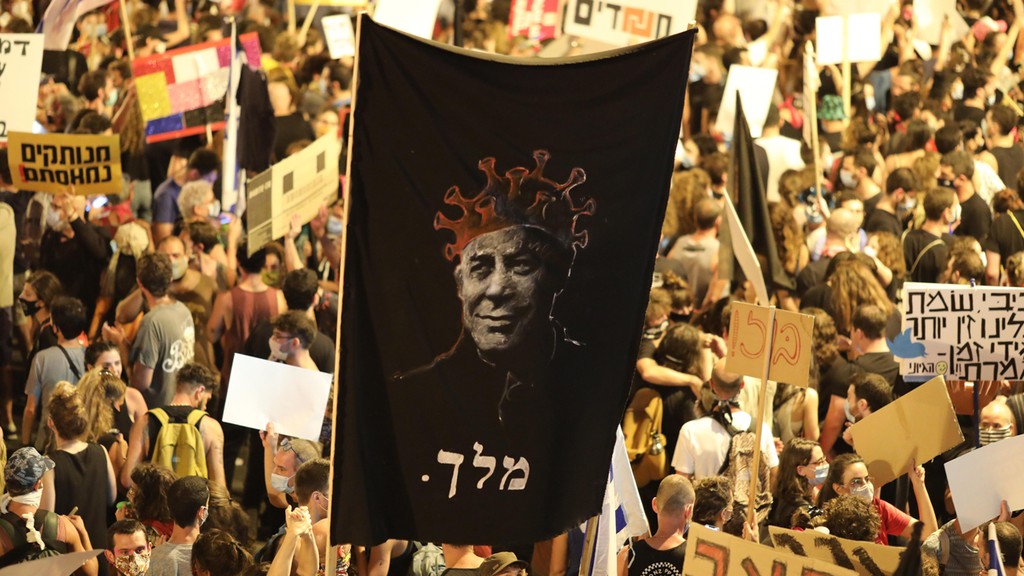

A protester carries a sign showing Benjamin Netanyahu wearing a crown shaped like coronavirus with the word 'king' underneath during a protest in Jerusalem
(Photo: EPA)
They lost their jobs and understand that the aid the country is willing to provide them is problematic in the short term and impossible in the long term.
Their pain is very real.
The wrath that is felt out in the streets stems less from what the state does not do, and more from what it actually does.
The children of November 1995 figured out they were being lied to, during the toughest of times, when the economy has come crashing down, when a quarter of them are unemployed, when the state's healthcare system is running on fumes, when their elected leaders remain horrendously cynical.
As always during an economic crisis, it is the ultra-Orthodox who are thriving.
How frustrating it must be to discover that those distributing aid to the casualties of the economic crisis are unscrupulous opportunists who see the current economic storm as an opening for political coercion.
How infuriating to see these politicians saying: "You want aid? Fine, as long as we get our generous cut first."
There is no other way to fathom the demand made by Interior Minister Aryeh Deri to distribute food stamps worth NIS 700 million only to those who receive a reduction on their municipal taxes.
Deri, who heads the ultra-Orthodox Shas party, knows very well which cities give such discounts and to whom the millions of shekels will eventually flow.
There is no other way to explain the demand of United Torah Judaism MK Moshe Gafni to approve a state stipend only on the condition it is allocated according to the number of children in each family.
For Israel's 25-year-olds, there are two options: Either take to the streets or get a foreign passport.
It is hard for the children of November 1995 to watch the restaurant where they wait tables being driven into financial ruin.
But they lose their temper when they see politicians exploiting their cries of pain and echoing them until the surrounding noise is deafening, and then using them to increase the number of worshipers in synagogues.
In the ultimate irony, both Prime Minister Benjamin Netanyahu and Alternate Prime Minister Benny Gantz are both stuck.
They both want to be recommended as the next prime minister, which means they must adhere to the demands of the ultra-Orthodox king-makers in the Knesset.
But if they want to get re-elected, they need Israel's younger population - and they have had enough.


